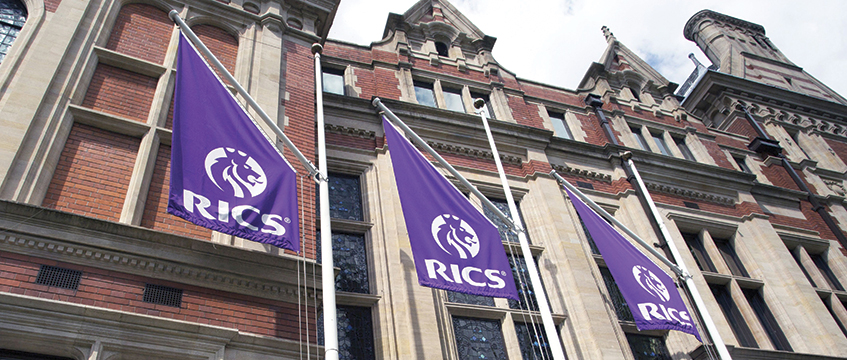RICS urges industry to report conflicts and rejects “members’ club” image
The property industry’s regulator, the Royal Institution of Chartered Surveyors, has stated that it must not be confused with a “members’ club or trade body”.
The RICS also warned there may be under-reporting of conflict of interest concerns in the institutional property market.
The statements come a year after the RICS announced it was banning “double dipping”, the practice of advising on both sides of a deal, for commercial property investment transactions.
The property industry’s regulator, the Royal Institution of Chartered Surveyors, has stated that it must not be confused with a “members’ club or trade body”.
The RICS also warned there may be under-reporting of conflict of interest concerns in the institutional property market.
The statements come a year after the RICS announced it was banning “double dipping”, the practice of advising on both sides of a deal, for commercial property investment transactions.
In the professional statement, which formally came into effect on 1 January 2018, the RICS also introduced new requirements that clients must be notified when agents are representing multiple parties bidding for a scheme, and for incremental increases in services provided.
Breaches of the rules by individuals or firms could incur penalties or disbarment from the RICS.
‘Taking responsibilities seriously’
In an interview with EG, Luay Al-Khatib, RICS director of regulation, EMEA, said: “Given the importance of a well-managed built environment to the welfare of society, the RICS takes its regulatory responsibilities very seriously.
“We operate an independent disciplinary process which will consider all credible evidence, impartially and in the public interest. A professional body such as the RICS must not be confused with a members’ club or trade body.”
The RICS regulation department employs just under 100 people in the UK undertaking professional assurance and monitoring, as well as investigation and enforcement through its tribunal, where independent decision makers make rulings that can result in sanctions.
Since last May, the RICS has not received any complaints about dual agency or multiple agency. However, it has received 42 complaints of conflicts of interest, most of which have been investigated.
‘Not complacent’
Al-Khatib warned he was “not complacent” despite the limited number of complaints.
He said: “There may be a tendency towards under-reporting of concerns to the RICS in the institutional property market. The largest clients will often be content simply to resolve matters themselves through the firm’s complaint handling process and external redress mechanisms (which are mandatory for all RICS regulated firms), coupled with ceasing business with the firm or individual.”
However, he called on the profession to engage more with the RICS’s regulatory process to help the body fulfil its duty to “uphold public interest” and in turn, protect the profession’s reputation.
Simon Prichard, senior partner at Gerald Eve, said: “As the pool of advisers continues to consolidate, conflicts of interest are inevitable. As such, the RICS banning of double dipping was a positive step in protecting the public interest.
“Being self-regulated, it’s vitally important that the RICS remain vigilant and that firms also play their part, stick to the rules and enforce appropriate behaviours.”
Threat of regulation
He added: “To be fair to the major UK general practice surveying firms, at executive level there is a genuine desire to act and behave appropriately. Simply, if we don’t we will have regulation imposed on us.”
Prichard also said dual agencies were most common in leasing instructions, which were not formally banned in the January professional statement, although a dual agency in a leasing deal without informed consent could validate a conflict of interest complaint.
Al-Khatib said: “We do have examples of leasehold situations where there has been a complaint of a conflict of interest, but it takes all parties to effectively engage.”
The RICS is now planning to go into a sample of registered advisory firms over the next quarter to review how well they have implemented the professional statement and conflicts of interest controls into their systems.
Raising awareness
Chris Ireland, UK chief executive at JLL, said: “The publicity and profile around the issue of dual agency, which was initially raised by the Investment Property Forum and subsequently taken forward by the RICS, has raised awareness and understanding of the problems associated with it and its effects on confidence in the investment process.
“I am unaware of any specific instances of the practice still being undertaken within the marketplace.”
He said the move by the RICS to introduce legislation had removed “any ambiguity” around the “vital” area, which is “essential to preserving the reputation of both the industry and real estate firms”.
Stephen Hubbard, UK Chairman CBRE, said: “Clearly there was a problem a few years ago with some firms and individuals failing to deal with conflicts properly and insufficient guidance in place. However, I do feel the new regulations have gone a long way towards resolving this, as is shown by the lack of complaints received by the RICS.”
He added: “We worked closely with the RICS to produce the new regulations which very much reflected the procedures we already had in place at CBRE. I think it was right to move to an outright ban on dual agency in the open market and all the indications are that this is being widely adhered to.”
RICS conflict of interest cases, January 2017 to May 2018
53 conflicts of interest cases
45% (24) regarding firms
55% (29) regarding professionals
11 of those cases are currently under investigation
42 have been closed, of which seven were closed at initial review stage and 35 following a formal investigation
To send feedback, e-mail Louisa.Clarence-Smith@egi.co.uk or tweet @LouisaClarence or @estatesgazette











